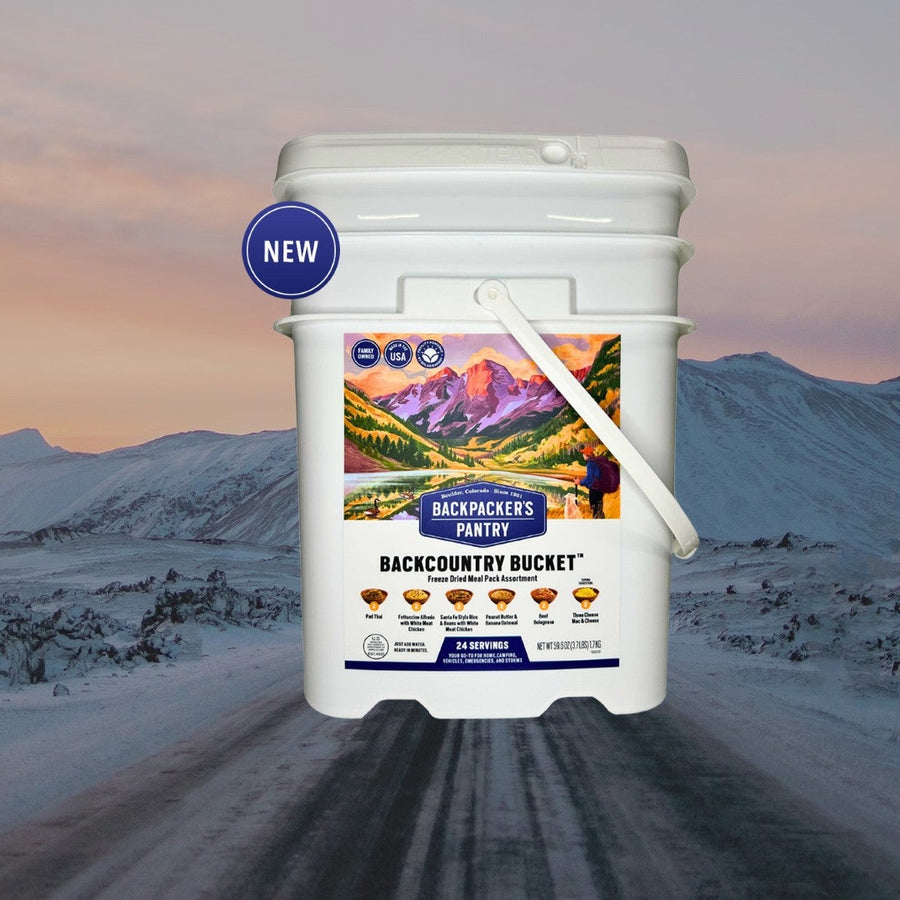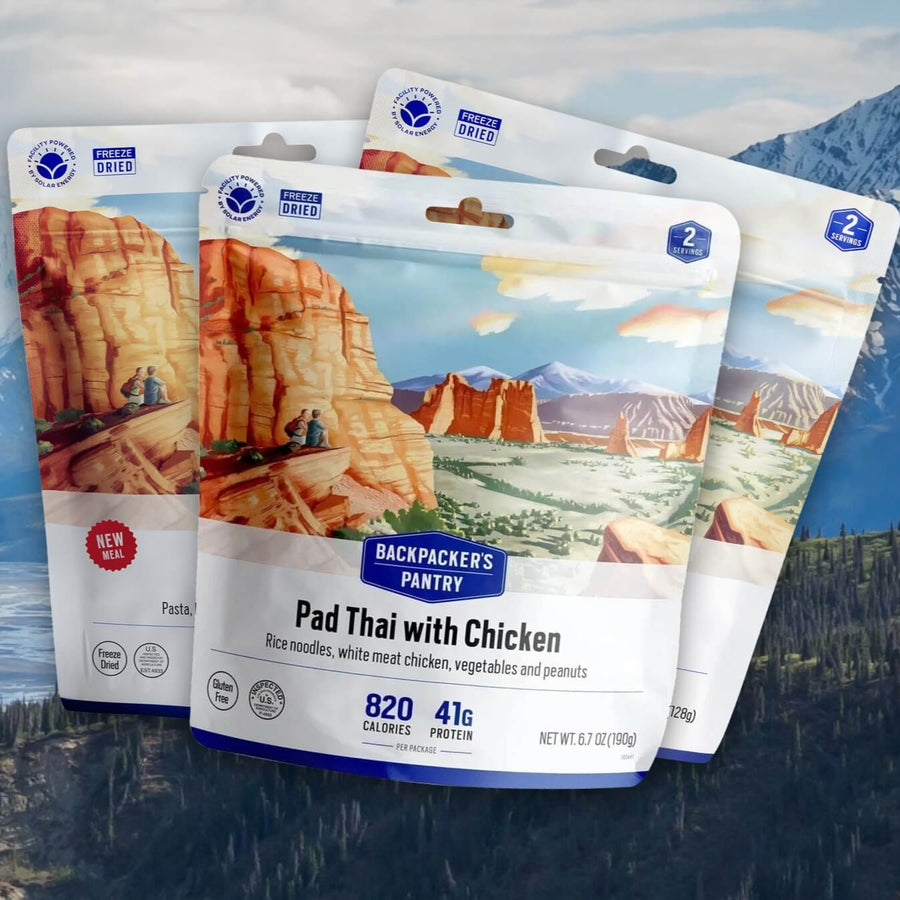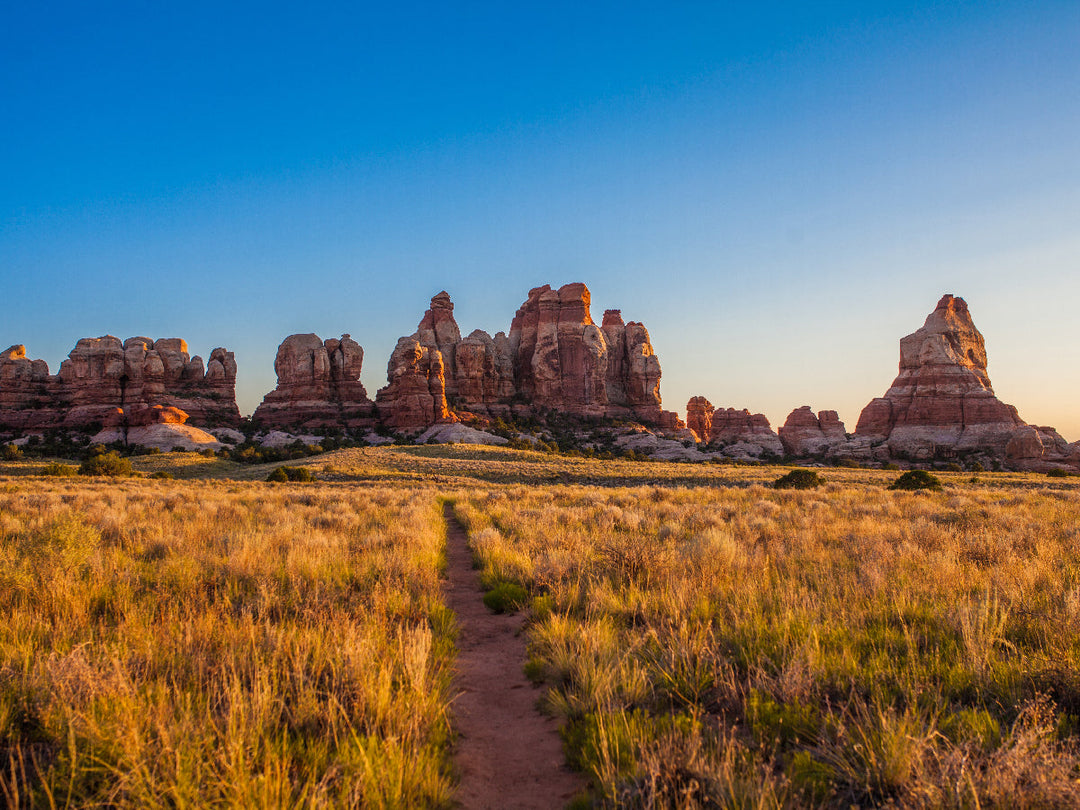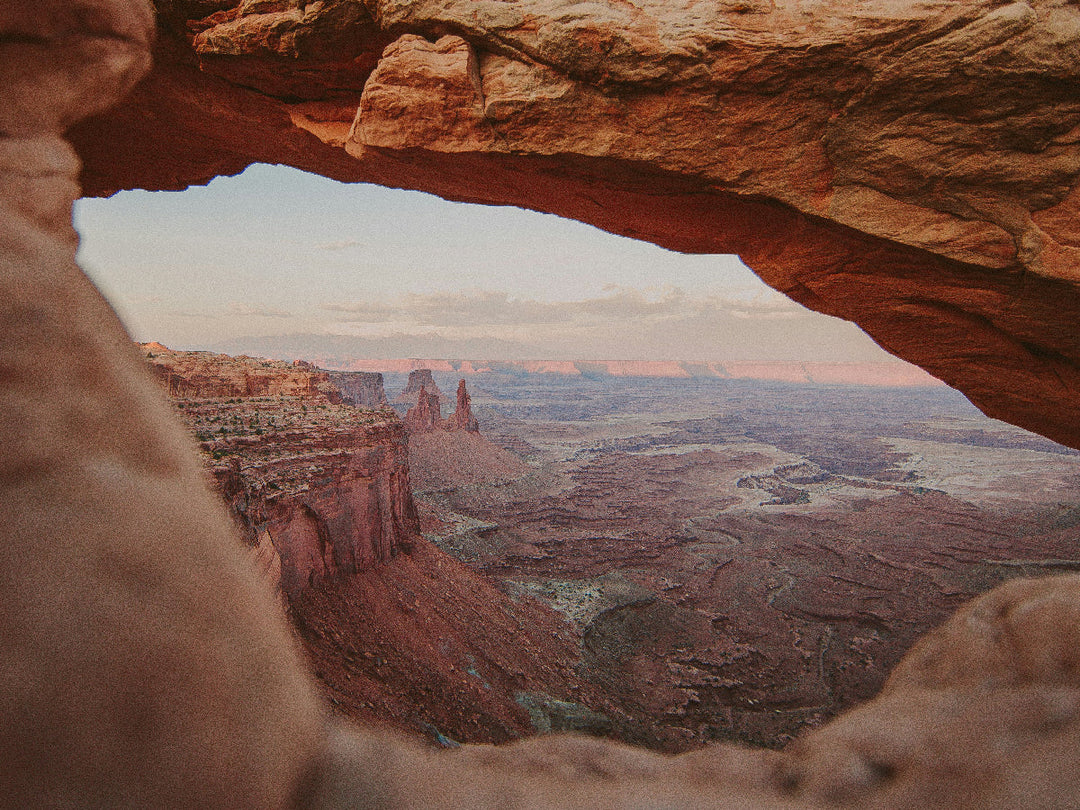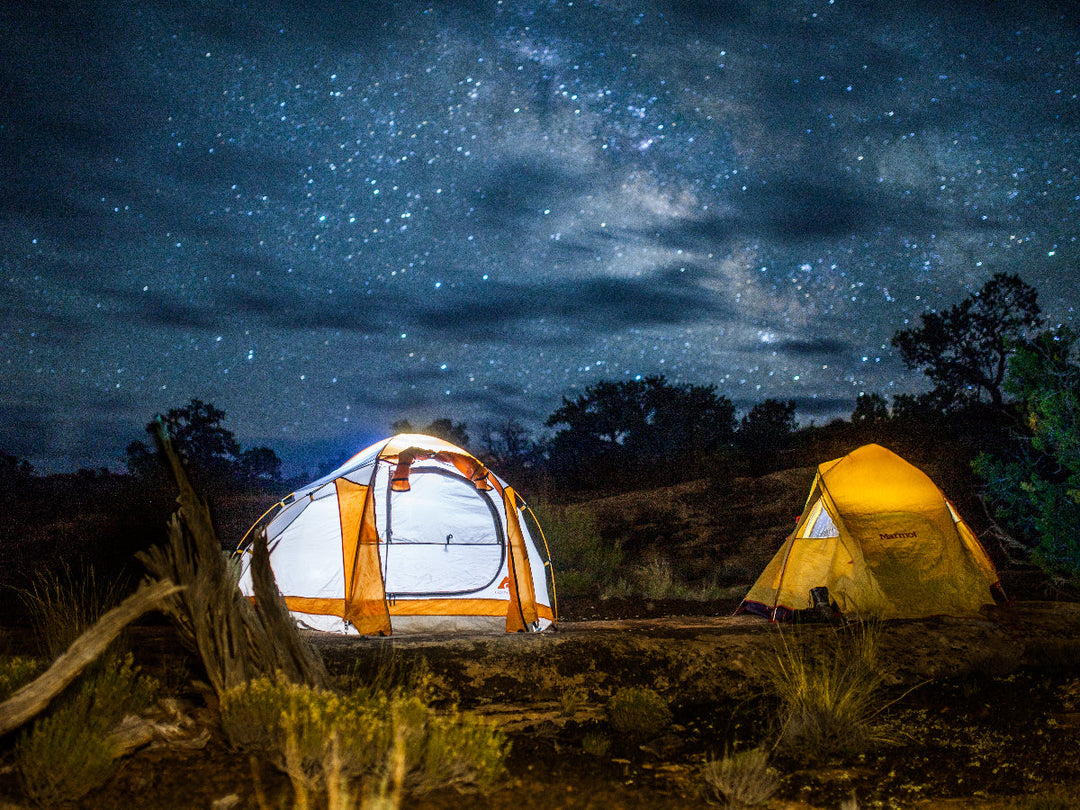How to Backpack Solo: Tips and Tricks for Hitting the Trail Alone
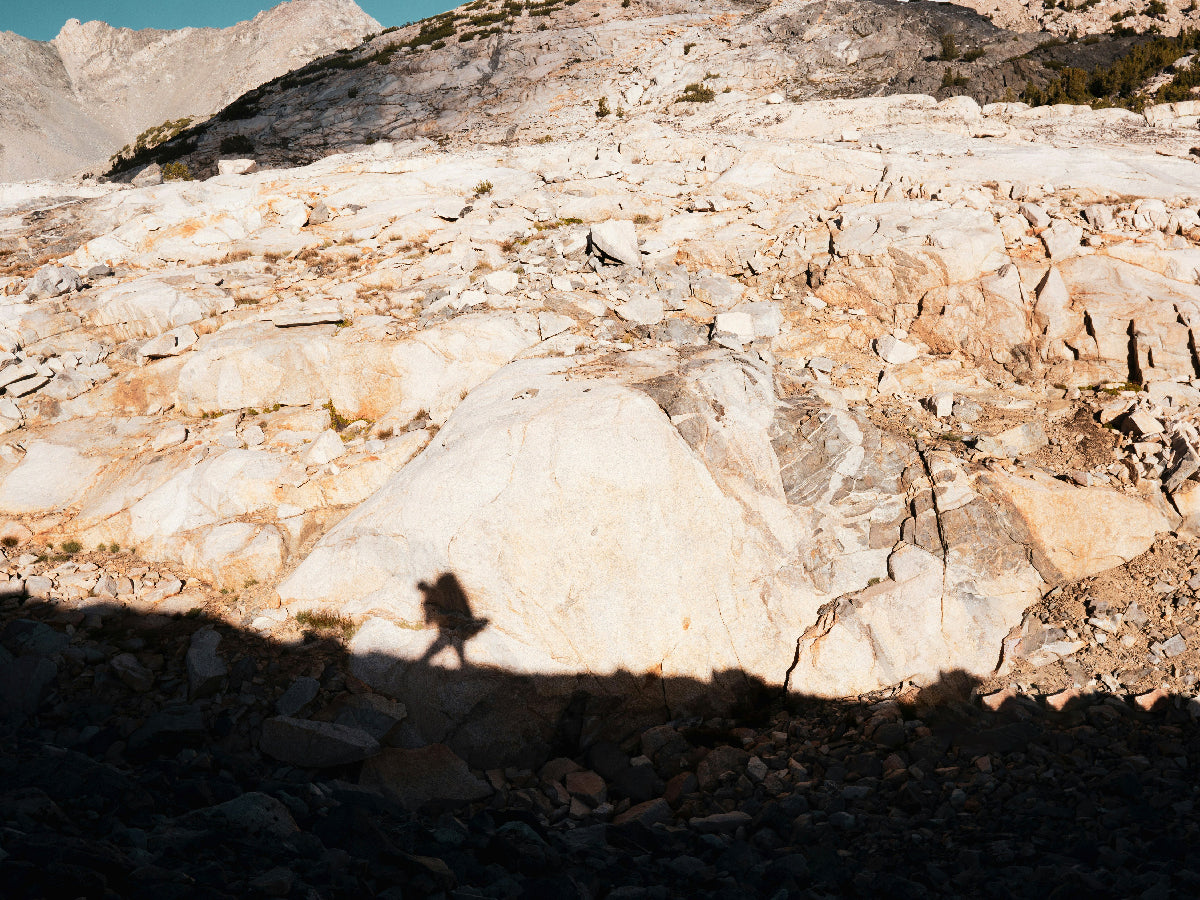
Solo backpacking is both an adventure and a journey of self-discovery. Whether you're a seasoned backpacker or new to the trails, embarking on a solo trip requires honed skills. While it may seem daunting, backpacking alone gives you an opportunity to connect deeply with nature, push your physical and mental limits, and grow in new ways. This guide will help you plan and prepare for solo backpacking and hopefully set yourself up for the first of many memorable trips to come.
Preparation: Mental and Physical
One of the most critical aspects of solo backpacking is preparing yourself mentally and physically for the challenges ahead. The solitude of the wilderness can be both calming and anxiety-inducing if you are not prepared. To mentally prepare, take some day hikes alone in nature and practice mindfulness throughout the day. Washington’s Snoqualmie Tribe has some resources on mindful recreation. As with hiking itself, mental practice helps build mental resilience, enabling you to manage the inevitable challenges and quiet moments with confidence.
Without a partner to push you along and keep you engaged, you will quickly understand how much more focused you need to be while backpacking solo. A hiking companion is very helpful for route-finding, for example, so when planning the strenuousness of your trip, make sure you can maintain your mental sharpness the whole way through.
Physically, solo backpacking demands more from your body than a regular hike. You'll be carrying all your gear, food, and water, which can add significant weight. To condition yourself, follow a structured training regimen. Do cardiovascular exercises such as hiking with a loaded backpack, running, or cycling to build endurance and focus on strengthening your core, legs, and back to prepare for long days. Gradually increase the weight of your backpack during training hikes to simulate the conditions you'll face in the wilderness.

Planning a Solo Backpacking Trip
Choosing the right destination is crucial for a successful solo backpacking trip. Consider factors like the difficulty of the trail, your skill level, the season, and the trail’s remoteness. We suggest starting with a well-marked, popular trail if you're new to solo backpacking, then gradually expanding your list of trails as you gain experience. Research is your best friend; thoroughly understand the terrain, weather patterns, and local regulations before setting out. Also familiarize yourself with the route, potential water sources, and campsites. Read our guide to choosing where to go backpacking for more info.
While we will discuss safety in greater depth below, when you’re planning your first solo backpacking trip, we recommend factoring in an exit plan if things don’t go your way. Your first trip should only be a day away from the trailhead to prepare for unexpected issues.
Gear & Packing for Solo Backpacking
When it comes to gear (and weight), packing smart is key. Your gear needs to be comprehensive but minimalistic since you’ll be the only one carrying it. Your packing list should emphasize multi-functional items to save space and weight.
Additionally, you need to be well-versed in repairing your gear. If you need to purchase anything before your trip, get familiar with your new gear before heading out alone.
Solo Camping Safety Skills and Precautions
Navigation
Safety is paramount when you're out in the wild alone, and navigation skills are non-negotiable. You must be proficient in using a map, compass, and GPS, and, as we mentioned previously, you shouldn’t be too tired to lapse in route finding. Even if you're familiar with the trail, technology can fail, and it's crucial to rely on traditional methods to find your way.
Along with navigation, risk of injury is more dangerous when you’re alone. Every time you hike solo, you have to be prepared to handle an injury without support.
First Aid
First aid and wilderness survival skills are critical while solo backpacking, and prevention is key. Consider signing up for a Wilderness First Aid, Wilderness Advanced First Aid, or Wilderness First Responder course if you are an avid recreator or have an interest in backpacking solo. While knowing how to treat injuries and calling for evacuation are crucial skills you learn in these courses, you also learn preventative measures like risk management and preventing emergencies like hypothermia and illnesses. REI and NOLS likely offer these courses in your area and can range from two to 10 days.
Share Your Itinerary!
Before heading out, always share your itinerary with a trusted friend or family member. Let them know your planned route, expected return date, and check-in points. This practice ensures that someone can alert authorities if you don't return as planned, providing an added layer of security on your trip. We highly recommend a personal satellite communicator (like the Garmin inReach) in the chance you cannot evacuate yourself on a solo expedition.
Wildlife
The final major safety concern when backpacking solo is safety from wildlife and, unfortunately, other people on the trail. Regardless of age or gender, it is a legitimate concern many people have. Some solo backpackers will carry an extra camp chair to create the illusion of a second person at a campsite, or carry bear spray in case of an animal encounter.

Dealing with Challenges Along the Way
Backpacking alone comes with its own set of challenges, but with the right preparation, you can navigate them successfully. Weather in the wilderness is notoriously unpredictable, so be prepared to adjust your plans if conditions turn hazardous.
Mental Hardship & Toughness
Loneliness is another challenge solo backpackers often face. While it can be hard in the moment, try to flip this feeling on its head - embrace the solitude and use it as a time for reflection. Overcoming the fear of being alone in the wilderness is part of the journey. Techniques like deep breathing, meditation, and even talking to yourself like you’re on an episode of Alone, or journaling can help manage these fears and keep you focused on the positive aspects of your adventure.
On the Trail: Practical Tips for Backpacking Alone
As you hit the trail, here are some tips that can enhance your solo backpacking experience:
- Pace yourself, taking regular breaks to avoid fatigue
- Listen to your body—hydration and nutrition are critical to maintaining energy levels
- Fine-tune your camping skills ahead of time—practice setting up your tent and cooking in various conditions to ensure you're prepared for any situation
- Know when to push through a discomfort vs. when it’s time to call it quits
More Expert Advice
“Have a plan, but anticipate that things may not go according to your expectations. When this happens, be prepared to confidently navigate the unknown by always having a backup plan. Familiarize yourself with options to make decisions grounded in knowledge instead of fear. Trust your gut.”
- Jocelyn Smith, Thru-Hiker & Mental Health Advocate
The Rewards of Solo Backpacking
There are so many unique rewards to solo backpacking. As you overcome the challenges of the trail, you'll experience personal growth and build confidence. The sense of self-reliance and accomplishment that comes from navigating the wilderness on your own is unparalleled. Moreover, solo backpacking allows for a deep, uninterrupted connection with nature. Without the distractions of conversation, you become more attuned to the sights, sounds, and rhythms of the natural world. Many find that the time spent in solitude fosters clarity, reduces stress, and renews a sense of purpose.
Even though you may still prefer backpacking with your friends, family, or dogs, having uninterrupted and unplugged time alone is a fantastic way to mix things up when getting outside.
By preparing mentally and physically, planning carefully, and embracing the challenges, you may unlock a new level of personal growth and connection with nature. So pack your gear, learn some new skills, and develop a greater understanding of yourself and the outdoors.
Additional Resources
For those looking to delve deeper into solo backpacking, here are some recommended resources:
Blogs, Forums & Communities
- r/WildernessBackpacking/
- r/Backpacking/
- /r/Ultralight
- The Solo Backpacker
- Bearfoot Theory Backpacking Blog
Solo Backpacking Books
- Grandma Gatewood's Walk: The Inspiring Story of the Woman Who Saved the Appalachian Trail by Ben Montgomery
- Way Out There: Adventures of a Wilderness Trekker by J.R. Harris
- Tracks: A Woman's Solo Trek Across 1700 Miles of Australian Outback by Robyn Davidson
- Lighten Up!: A Complete Handbook For Light And Ultralight Backpacking by Don Ladigin
- How to Survive Your First Trip in the Wild: Backpacking for Beginners by Paul Magnanti
